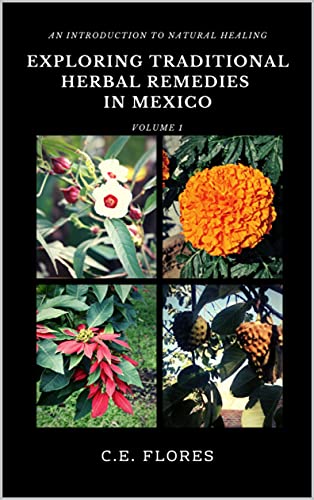
Hinojo (Foeniculum vulgare) came to Mexico with the Spanish missionaries as part of their medicinal gardens. In traditional Mexican remedies, it is used to treat migraines, colds, and cough. It is also prescribed as a digestive aid and appetite stimulant. Hinojo seeds, leaves, roots are edible.
Women’s cures that include hinojo involve regulating menstruation, alleviating mastitis, and increasing milk production. Hinojo tea has shown positive recovery effectiveness when given to women postpartum. Women suffering from menopausal depression and anxiety conditions have experienced moderate to significant relief with regular ingestion of fennel. In large doses, hinojo acts as a uterine stimulant.
An anti-anxiety tea is made from flor de manita (Chiranthodendron pentadactylon), flor de azahar (orange blossoms), toronjil morado (Agastache mexicana), yerba buena (Mentha spicata), and hinojo in equal measures.
Hinojo leaves have antihyperglycemic, hypoglycemic and antioxidant effects. Hinojo essential oil is an effective treatment for inflammation and arthritis. Its use in treating colds and coughs is supported by its anti-inflammatory, antibacterial, antifungal, antiviral, immunomodulatory effects. Hinojo has demonstrated effective antimycobacterial activity including tuberculous and respiratory infections. It has a calming effect on bronchial tissues. The seeds act as an expectorant to loosen phlegm in the lungs.
A remedy for colds with cough calls for three or four cups a day of hinojo seed infusion sweetened with honey.
As a digestive aid, it has been shown to be anti-inflammatory and anti-spasmodic, to speed up the digestion process of fatty foods, and be useful in the treatment of colitis. It also reduces neuronal toxicity. For vomiting and diarrhea, boil about several hinojo stems in a liter of water and add about 30 grams of coffee. Drink on an empty stomach.
Individuals suffering from empacho (indigestion) are sometimes given a mild tea made from albaca (Ocimum basilicum), cempasúchil (Tagetes erecta), eneldo (Anethum graveolens), hinojo, hojasén (Flourensia cernua – Asteraceae), yerba buena (Mentha spicata), poleo (Mentha pulegium), and rosa de castillo (Purshia plicata) combined in equal parts. A good size pinch of this herb mix is steeped in a liter of water and a teaspoonful is administered. Another colic tea for babies is made from crushed fennel seeds.
A tea for a gasy stomach is brewed using a pinch of flor de azahar (orange blossoms), crushed anís seeds (Pimpinella anisum) and crushed hinojo seeds. Steep the ingredients in a cup of hot water for 10-15 minutes. Strain and sweeten with honey.
Bilis, indigestion caused by a fit of anger, is treated with an infusion of hinojo leaves and flowers, guayaba (Psidium) leaves, and a pinch of marrubio (Marrubium vulgare) leaves steeped in a cupful of water. Or a tea can be made combining hinojo and romero leaves.
Note: Essential oil made from the seeds is toxic. It can cause vomiting, seizures, respiratory distress, and vomiting and should never be ingested. Hinojo may also cause contact dermatitis after handling. Because strong doses of hinojo can cause uterine contractions, pregnant women should avoid any remedy that contains it.
***
Learn more about Mexican traditional remedies!



